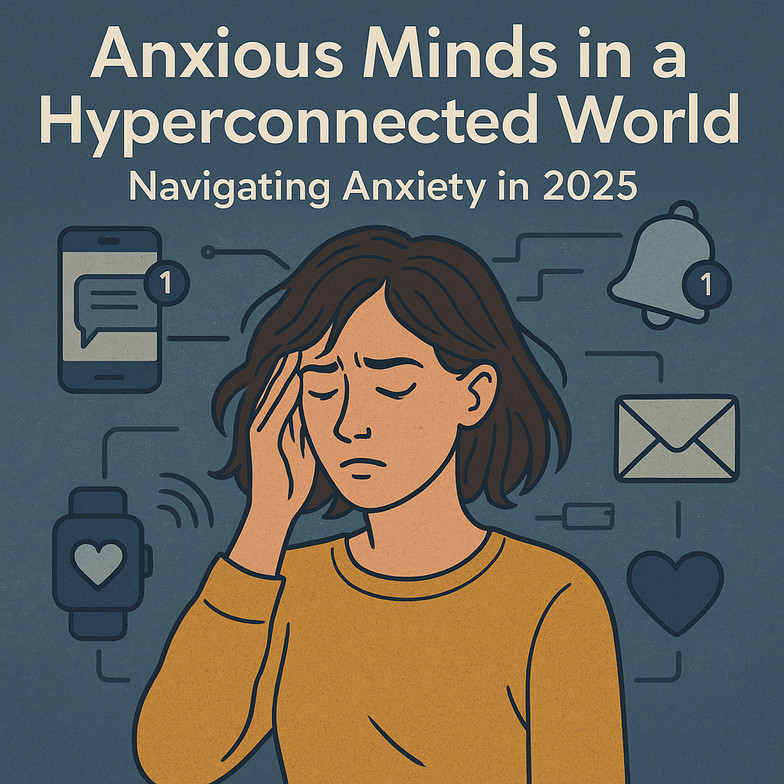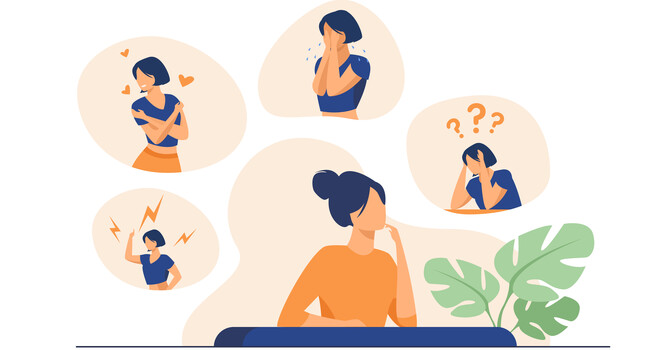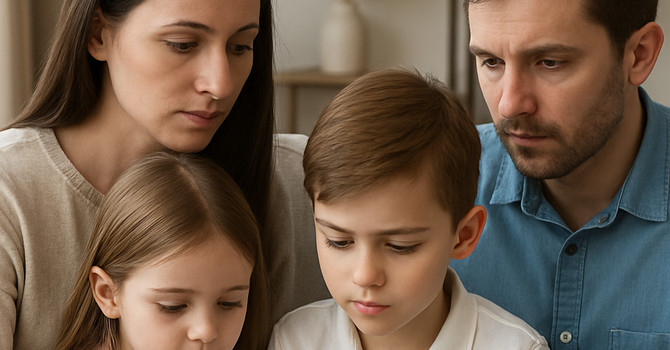
It’s 2025, and we’ve never been more connected — or more anxious.
Between smartwatches nudging us to breathe, phones pinging us about “urgent” updates, and social feeds overflowing with curated perfection, today’s digital environment is both a lifeline and a source of emotional overload. The hyperconnected world promises convenience and community, yet many of us are left feeling fragmented, distracted, and overwhelmed.
The Anxiety of Being "Always On"
Anxiety thrives in uncertainty — and technology, paradoxically, both reduces and amplifies that uncertainty. We now know the news as it happens, can track loved ones in real-time, and access information instantly. But the cost? An inability to fully unplug. Our minds are rarely at rest. The expectation to respond immediately, perform constantly, and curate our lives online creates a sense of pressure that never really shuts off.
Notifications are the new alarm bells, and our nervous systems are taking the hit.
Comparison Culture and Digital Perfection
On platforms like Instagram and LinkedIn, it's easy to believe that everyone else is more successful, happier, or further ahead. This constant comparison, especially when filtered through an anxious mind, can lead to feelings of inadequacy, restlessness, and a deep inner sense of "not enough." Social media may connect us, but it often does so at the expense of authenticity and mental stillness.
How Do We Navigate This as Anxious Humans?
There’s no single answer, but here are a few grounding strategies for navigating anxiety in our digital lives:
-
Digital Boundaries Are Mental Health Boundaries.
Schedule screen-free time. Disable non-essential notifications. Use "Do Not Disturb" mode. This isn't weakness — it’s maintenance. -
Notice What You Consume.
Follow accounts that inspire rather than trigger. Limit doomscrolling and algorithm-fueled rabbit holes. Choose input that soothes, not spikes. -
Anchor in the Present.
Mindfulness practices — even brief moments of intentional breathing — remind your body you're safe, even if your mind is racing. -
Reconnect with the Physical World.
Nature walks, face-to-face conversations, and analog hobbies are antidotes to digital overstimulation. -
Therapy Helps.
Working with a therapist can help you untangle the roots of anxiety, build coping tools, and reclaim a sense of agency in a noisy world.
Final Thoughts
In 2025, it’s no longer enough to have a mental health strategy — we need to live it daily. Our hyperconnected lives aren't going anywhere, but with intention and compassion, we can meet this digital era without letting it drown us. Anxiety doesn’t have to be the default state. With practice, we can choose calm.
.JPEG)
.JPEG)




